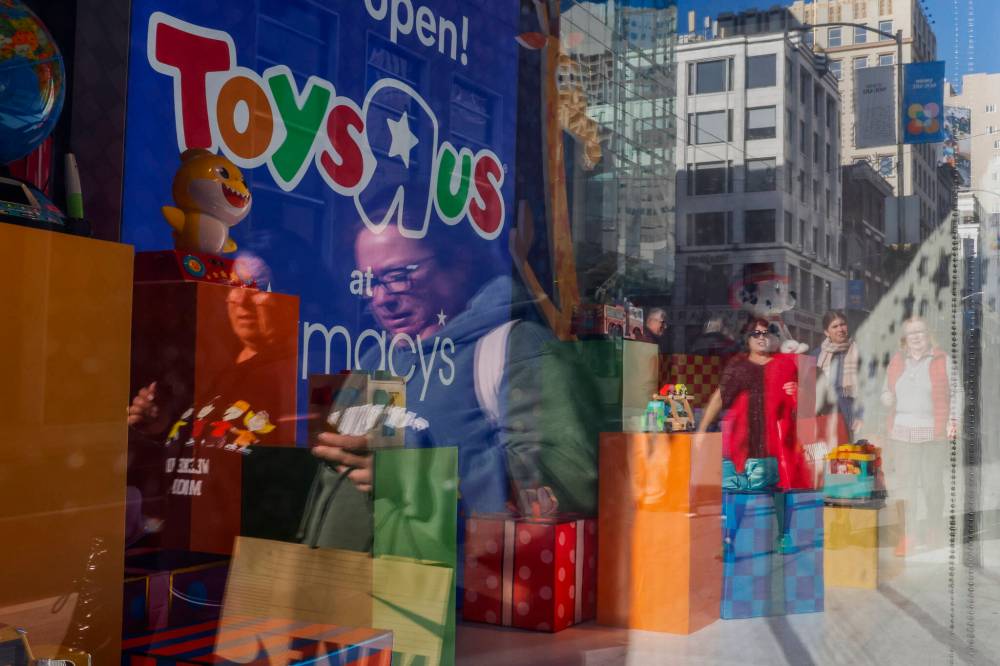Teaching children gratitude at Christmas
Advertisement
Read this article for free:
or
Already have an account? Log in here »
We need your support!
Local journalism needs your support!
As we navigate through unprecedented times, our journalists are working harder than ever to bring you the latest local updates to keep you safe and informed.
Now, more than ever, we need your support.
Starting at $15.99 plus taxes every four weeks you can access your Brandon Sun online and full access to all content as it appears on our website.
Subscribe Nowor call circulation directly at (204) 727-0527.
Your pledge helps to ensure we provide the news that matters most to your community!
To continue reading, please subscribe:
Add Brandon Sun access to your Winnipeg Free Press subscription for only
$1 for the first 4 weeks*
*$1 will be added to your next bill. After your 4 weeks access is complete your rate will increase by $4.99 a X percent off the regular rate.
Read unlimited articles for free today:
or
Already have an account? Log in here »
Hey there, time traveller!
This article was published 10/12/2022 (1003 days ago), so information in it may no longer be current.
Maybe I am romanticizing when I say the Christmas of my childhood was not about stuff. There were fewer products, less pervasive advertising and no Black Friday sales. A few pages at the back of the Sears Wish Book were the inspiration for visions of sugarplums dancing in my head.
The focus on consumerism is undoubtedly affecting our kids and their ideas of happiness. To find out, I once talked with Mike Ferry, author of “Teaching Happiness and Innovation,” whose research on happiness focuses on children.
It turns out that my instinct was correct. Ferry sees consumerism as a “big problem“ for kids, and a roadblock on the way to becoming appreciative and contented individuals. “In the consumer age,“ he said, “our happiness is based on consuming the latest and greatest and newest.”

Shoppers pass the Toys R Us display outside Macy’s Union Square as they walk to catch Black Friday deals in San Francisco on Nov. 25. Louise McEwan says teaching children to practise gratitude around the holidays could reduce consumerism’s negative effects. (San Francisco Chronicle)
This message is not good for our children.
Over his years of researching the science of happiness, Ferry has bumped into a phenomenon called the abundance paradox: the more we have, the less we appreciate anything. Mass production and cheap labour have created an abundance of readily available goods. As a result, “we live in a throwaway, disposable age. If our kids are growing up within this abundance paradox concept, then it’s really hard for them to see the value in things; it’s hard for them to enjoy anything.”
While Ferry points out that “we might be wired to whine,” modelling gratitude for our kids will help them (and us) become more grateful. “If we can teach our kids to practise gratitude in the home, then we will be able to combat some of this abundance paradox and our children will start to appreciate the little things in life and will be much happier as a result.” This is not only good for the child but also for society because grateful individuals positively impact the world.
There has always been hype leading up to Christmas morning. With the abundance of goods, advertising and the constant question, “What do you want for Christmas?” kids can easily get the message that Christmas is about them and their stuff. The emphasis on getting things encourages kids to focus on themselves and ratchet up their wants during the holiday season.
But there is no need to despair. We can help them become more appreciative and aware of others. Ferry has suggestions for practising gratitude with kids in the classroom, some of which I have adapted for Christmas.
Play the gratitude game around the table before a meal. Choose a Christmas-related word and assign each member of the family one letter. Each person names one thing they are grateful for that begins with their letter (C is for Christmas cookies, H is for home, etc.).
Involve your children in charitable giving. Shortlist a few charities and talk with your child about their work. Let them help you select the one to which you will make a donation. Encourage them to contribute from their piggy bank.
If you are buying a gift for someone in need, let your children help select the gift.
Avoid the free-for-all approach to opening gifts. Take turns. Look at everyone’s gifts, not only your own. Say thank you to those present, and followup with a phone call or card to those not present.
Everyone wants their kids to be happy on Christmas morning, so it can be tempting to go overboard with the gifts. At the same time, we want to raise kids who appreciate the gifts they receive and the people in their lives. For the long-term emotional well-being of our kids, it’s important that we successfully navigate the abundance paradox with them.
Our Christmas memories stay with us for a lifetime. When I look back at the many Christmas celebrations over the decades of my life, I remember moments (like looking through the Wish Book) and not stuff (except a Chatty Cathy doll that I had desperately wanted, loved and played with for a very long time).
I remember sitting with the Wish Book on my lap until I had narrowed down my wants before penning that all-important letter to Santa. It was a useful exercise that taught me the wisdom of another paradox: less is more.
» Louise McEwan has degrees in English and theology. She has a background in education and faith formation.
